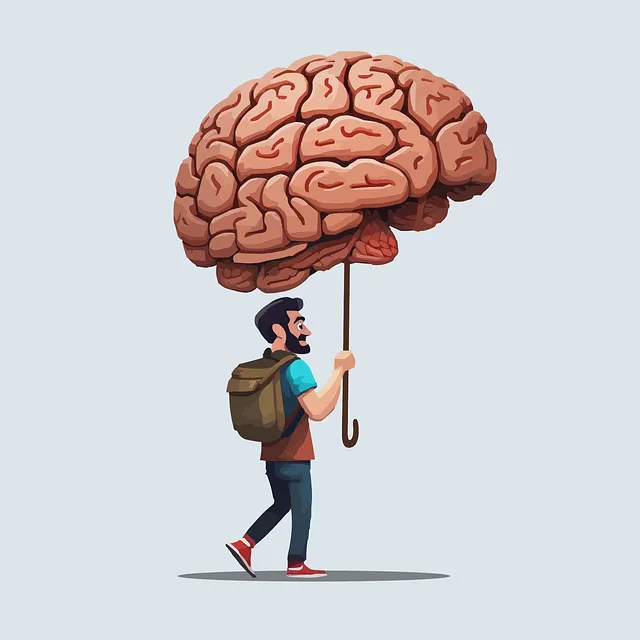Mental wellness self-assessment tools like those developed by Kaiser Permanente and based on the Parker Model are transforming mental healthcare. They offer holistic, user-friendly frameworks that assess emotions, behaviors, and social connections to identify mental health issues early. By integrating practices such as mindfulness meditation and fostering cultural competency, these tools empower individuals to proactively manage stress, anxiety, or depression. Organizations can leverage these assessments through strategic implementation, including culture shifts, accessibility, training, feedback collection, and open dialogue, to promote proactive mental wellness among employees.
Mental wellness self-assessment tools play a pivotal role in early detection and management of psychological issues. This article explores the development of such tools, focusing on the Kaiser Permanente Mental Health Assessment and the integration of the Parker Model for enhanced evaluation. We delve into effective strategies for creation and implementation, ensuring accuracy and usability. By leveraging evidence-based frameworks like Kaiser Permanente and the Parker Model, we aim to empower individuals with accurate self-assessments for better mental health management.
- Understanding Mental Wellness Self-Assessment Tools
- Kaiser Permanente Mental Health Assessment: A Comprehensive Framework
- Integrating the Parker Model for Enhanced Evaluation
- Development and Implementation Strategies for Effective Tools
Understanding Mental Wellness Self-Assessment Tools

Mental wellness self-assessment tools play a pivotal role in empowering individuals to take charge of their mental health and well-being. These tools, designed by leading healthcare providers like Kaiser Permanente, offer a structured yet personalized approach to evaluating one’s mental health status. The Parker model, for instance, provides a comprehensive framework that considers various aspects of an individual’s life, including their emotions, behaviors, and social connections, to assess their overall mental wellness.
These self-assessment tools are not just about identifying potential mental health concerns; they also serve as valuable resources for mental health education programs design. By encouraging mindful reflection and introspection, they foster cultural competency training among individuals, enabling them to recognize signs of stress, anxiety, or depression and take proactive measures. Moreover, integrating practices like mindfulness meditation can enhance the effectiveness of these tools, promoting a holistic approach to mental wellness that resonates with today’s diverse and bustling society.
Kaiser Permanente Mental Health Assessment: A Comprehensive Framework

The Kaiser Permanente Mental Health Assessment stands out as a comprehensive framework designed to evaluate and improve mental wellness. This tool caters to various aspects of mental health, incorporating standards from both clinical practice and research, making it an invaluable resource for healthcare providers. By systematically assessing symptoms, functioning, and risk factors, the Kaiser Permanente approach facilitates early identification of mental health issues, enabling timely interventions and effective burnout prevention strategies for healthcare providers.
Integrating this framework into mental wellness coaching programs development can significantly enhance support for both patients and practitioners. The assessment’s holistic nature encourages a tailored approach to care, addressing not just symptoms but also the broader context of an individual’s mental wellness. This comprehensive methodology aligns with current trends in Burnout Prevention Strategies for Healthcare Providers, underscoring the importance of proactive mental health management within healthcare settings.
Integrating the Parker Model for Enhanced Evaluation

The Kaiser Permanente mental health assessment tools have been enhanced through the integration of the Parker Model, a structured framework that goes beyond traditional diagnostic criteria. This model prioritises functional outcomes and encourages a holistic view of an individual’s mental wellness journey. By incorporating elements of self-care practices and promoting Anxiety Relief through tailored interventions, the Parker Model enriches the evaluation process.
It facilitates comprehensive assessment by exploring not just symptoms but also daily functioning, relationships, and overall well-being. This shift in perspective empowers individuals to actively participate in developing a personalized Self-Care Routine Development for Better Mental Health. The collaborative nature of this approach ensures that mental health support aligns with each person’s unique needs and aspirations.
Development and Implementation Strategies for Effective Tools

The development of effective mental wellness self-assessment tools is a multifaceted process that requires careful consideration and strategic implementation. Inspired by models like Kaiser Permanente’s mental health assessments, creators should aim for comprehensive yet user-friendly designs. Incorporating evidence-based practices such as Stress Reduction Methods and Emotional Intelligence techniques can enhance the accuracy and benefit of these tools. By integrating these strategies, self-assessments can not only identify potential mental health concerns but also equip users with practical skills to manage and improve their emotional well-being.
Implementing these tools within an organizational context, akin to Parker’s approach in integrating wellness programs, demands a holistic view. It involves fostering a culture that prioritizes mental health, ensuring accessibility for all employees, and providing ongoing support through regular updates and training. Effective implementation strategies include piloting the tools with a diverse group of users, gathering feedback for refinement, and promoting open conversations around mental wellness to encourage active participation. This inclusive process ensures that the self-assessment tools remain relevant, engaging, and beneficial in diverse settings.
Mental wellness self-assessment tools play a pivotal role in individual awareness, early intervention, and access to appropriate care. By integrating comprehensive frameworks like the Kaiser Permanente Mental Health Assessment and innovative models such as the Parker Model, these tools can significantly enhance mental healthcare accessibility and quality. As discussed, effective development strategies involve rigorous research, stakeholder involvement, and continuous refinement based on user feedback. Embracing these approaches ensures that self-assessment tools remain relevant, accurate, and valuable in supporting individuals’ mental wellness journeys.






